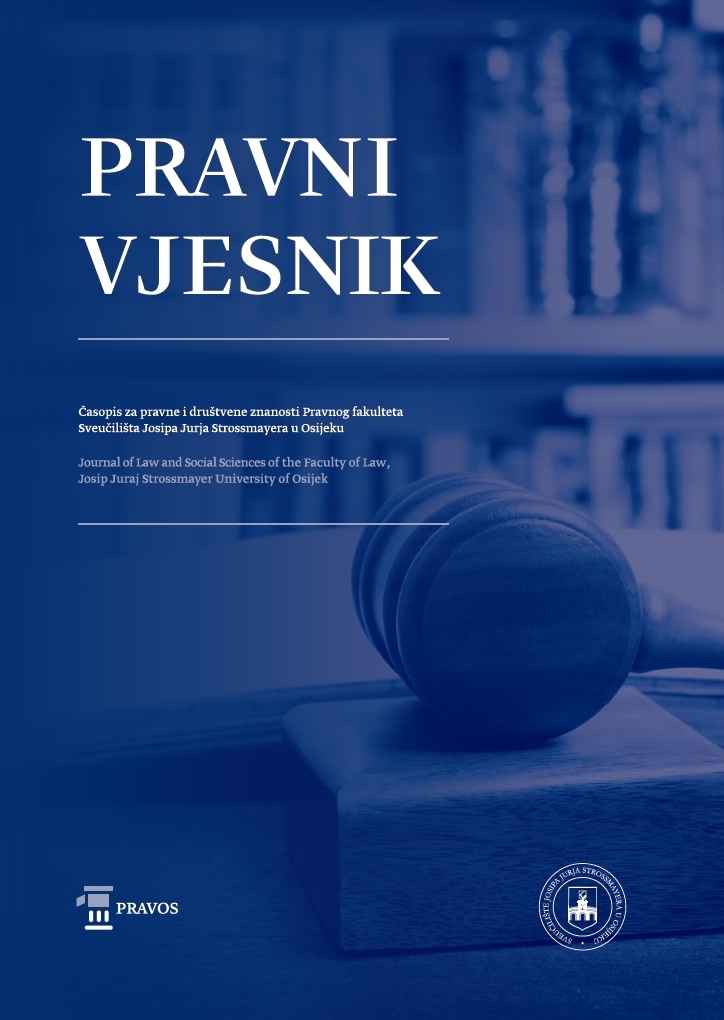CHALLENGES OF LEGAL REGULATION OF SEA KAYAKING IN THE REPUBLIC OF CROATIA
DOI:
https://doi.org/10.25234/pv/28319Abstract
The paper deals with the analysis of the existing legal framework of the status of sea kayaks in the Republic of Croatia, the definition and the position of a kayak as a vessel in the domestic navigation safety system, and its goal is to present the regulation and give a critical review thereof. The types of kayaks are presented with respect to their purpose and construction, the univocity of the term in domestic legislation is questioned, and the solutions of the French model, which individualises these vessels with regard to the mentioned features, will be presented comparatively. The paper also presents kayaking as a sport and economic activity, as well as the necessary education of kayakers for the needs of active and adventure tourism.
The paper analyses the international and national legal framework of navigation safety. The results of a survey of legal regulation of sea kayaking in the Republic of Croatia are also presented. The authors conclude that sea kayaking in the Republic of Croatia has not been properly regulated and that the existing legislation needs to be changed.
References
Aadland E, Vikenea O L, Varleya P, and Moe V F, ‘Situation awareness in sea kayaking: towards a practical Checklist’ (2017) 3, Journal of Adventure Education and Outdoor Learning, 203–215.
Bolanča D and Amižić Jelovčić P, Pomorsko pravo (Sveučilište u Splitu, Pravni fakultet Split 2023).
Bolanča D, ‘Sposobnost broda za plovidbu u pomorskom prijevozu stvari’ (1994) 41(1–2) Naše more, 61–65.
Brown, G, Sea kayak (Pesda Press 2006).
Button R, ‘International Law and Search and Rescue’ (2017) 70(1).
García Maza J. A., Argüelles R. P., ‘COLREGs and their application in collision avoidance algorithms: A critical analysis’ (2022) 261 Ocean Engineering, 112029.
Grabovac I, ‘Kako uračunati “posebnu naknadu” u Međunarodnoj konvenciji o spašavanju, 1989.’ (1997) 153–154 Poredbeno pomorsko pravo 1–12.
Grabovac I, Suvremeno hrvatsko pomorsko pravo i Pomorski zakonik (Književni krug, Split 2005).
Hussam Kassem A, ‘The Legal Aspects of Seaworthiness: Current Law and Development’ (doctoral thesis, Swansea University 2006).
Jašić D, Belamarić G and Gundić A, Međunarodna pravila o izbjegavanju sudara na moru (Sveučilište u Zadru, Zadar 2012).
Kerr M, The International ‘Convention on Salvage 1989 – how it came to be’ (1990) 39(3) International and Comparative Law Quarterly 530–556.
Mandaraka-Shepard A, Modern maritime law and risk management (second edition, Informa London 2009)
Marin J, ‘Odgovornost prijevoznika za plovidbenu sposobnost broda’ (2008) 58(1–2) Zbornik Pravnog fakulteta u Zagrebu, 489–507.
Milošević Pujo B and Jurčević E ‘Traganje i spašavanje na moru’ (2006) 53(1–2) Naše more, 34–38.
Pavić D, Pomorsko imovinsko pravo (Književni krug, Split 2006).
Skorupan Wolf V, ‘Koncept stvarne nadležnosti sudova u plovidbenim sporovima (analiza de lege lata)’ (2018) 39(2) Zbornik Pravnog fakulteta Sveučilišta u Rijeci, 949–988.
Stanković P, ‘Nova Međunarodna konvencija o spašavanju na moru’ (1989) 31(122–124) Uporedno pomorsko pravo 291–300.
Tuhtan Grgić I, ‘Polje primjene imovinskopravnih odredbi Pomorskog zakonika s obzirom na objekte’ (3rd International scientific conference on maritime law “Modern challenges of marine navigation”, Split, Croatia, 2021, 333–379).
Downloads
Published
Issue
Section
License
Copyright (c) 2024 Aleksandra Vasilj, Biljana Činčurak Erceg, Ivan Piper

This work is licensed under a Creative Commons Attribution-NonCommercial 4.0 International License.
Authors retain the copyright on the papers published in the Journal, but grant the right of first publication to the Journal. Papers accepted for publication or already published in Pravni vjesnik of the Faculty of Law in Osijek may be published by the author(s) in other publications only with proper notice of its previous publication in Pravni vjesnik.






